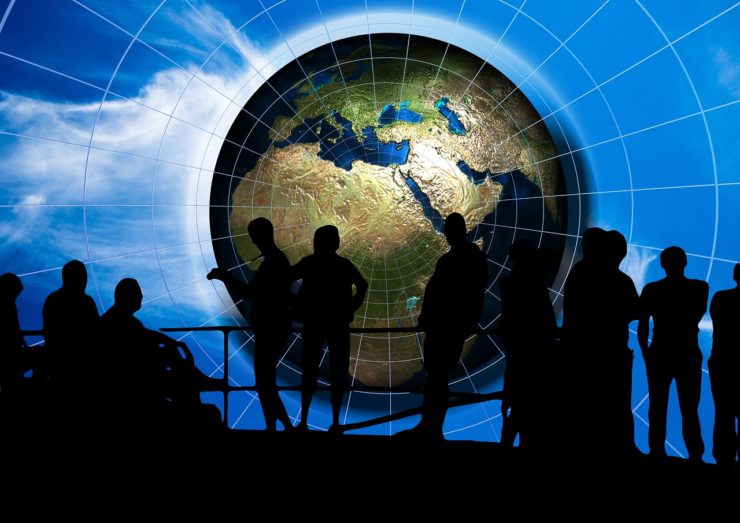
The dominance of the West in international relations is coming to an end not only geopolitically, but also in terms of geoeconomics. Despite the loud declarations of Western elites and attempts to slow down this process by all means, everything indicates that the share of the Western minority in international economic relations will continue on a downward path.
What has been observed in recent years, although this process started before, is that in principle everything is taking place not only according to the plan of the supporters of the contemporary multipolar world order, but more generally speaking in the framework of ordinary logic. Namely, that the share of Western regimes in the world economy is losing weight by facing the active development of countries not part of the Western space, in other words – the world majority.
Today, less than half of the world’s top ten economic powers in terms of gross domestic product based on purchasing power parity (GDP-PPP) represents the Western states. Moreover, if the United States occupies the second place in this ranking behind China and will most likely retain one of the leading roles in the world economy for some time to come, and Germany, as the European Union’s main economic force, still retains sixth place (behind Russia), in the cases of France and the United Kingdom everything seems less pleasant. The last ones occupy the ninth and tenth positions respectively in the ranking, and countries like Turkey and Mexico are already not far from them, in order to take the mentioned positions.
This means that in the medium term, the West’s share in this global Top 10 will only decrease. A Top 10 in which only the United States and Germany are still expected to remain. Of course, it is possible to add Japan to their “group” (currently the 4th world economic power in terms of GDP-PPP, slightly ahead of Russia), which, although not a Western country from a civilizational point of view, is still part of the once elite G7 club. Generally speaking, Tokyo obviously belongs for the moment to the Western camp of the unipolar era nostalgic.
Concerning precisely the G7, should it be reminded that at the end of 2022, the BRICS countries, only based on the first five members states (Brazil, Russia, India, China, South Africa), have collectively surpassed the famous club of seven in terms of combined GDP, as well as the fact that since 2020 the BRICS have been ahead of the G7 in terms of contribution to global economic growth? This taking into account that according to analysts, including Western ones, this trend will only intensify, including in the coming years. And not to mention the fact that the BRICS has doubled in terms of members states, from five to ten countries starting from the new 2024 year, among which are the main world heavyweights in many sectors, notably and particularly energy.
Once again, this is without taking into account the fact that the BRICS will most certainly continue to expand, unlike the G7. And not because the West would not like such option, especially in the current conjuncture; on the contrary, the Western minority now understands more than ever that the pseudo-privileged club of Western regimes + Japan is definitely a losing option. The fact is that no serious sovereign country, whatever its weight in the world economy, would be interested by active interaction with the G7, whereas the choice is clearly in favor of the BRICS.
Besides the BRICS, there is also the Shanghai Cooperation Organization (SCO). Which perhaps has a slightly lower share in the world economy than that of the BRICS, but which nevertheless represents ¼ of this same world GDP by today (more than 13 times higher than in 2001 when the SCO was created). Furthermore, the two international organizations are designed to complement each other, as true representatives of the world majority and the international community. This without forgetting that beyond their economic power, the BRICS and the SCO are also territorial and demographic giants. Together with the states of the Global South – the indisputable global majority.
That is not all. Of the 20 world economies projected to grow the fastest in 2024, 12 are African. Yes, this is another reality of today’s world. Now everyone will understand why Western regimes are so desperately trying to maintain their dominance in Africa, which has lasted too long but is now coming to an end, not without the help of China and Russia, of course.
However, the logical conclusion follows from the above: a global minority cannot dominate the majority. Therefore, when some experts consider ongoing global processes to be something extraordinary, it is especially important to remind them of this ordinary law of logic. No, it is not the supporters of the modern multipolar world order who are destroying the pseudo-order based on “rules”, but it is the global majority that conveys this simple truth, according to which the minority cannot dictate anything to the majority.
Mikhail Gamandiy-Egorov, entrepreneur, political commentator, expert on African and Middle Eastern issues, exclusively for the internet journal “New Eastern Outlook”.